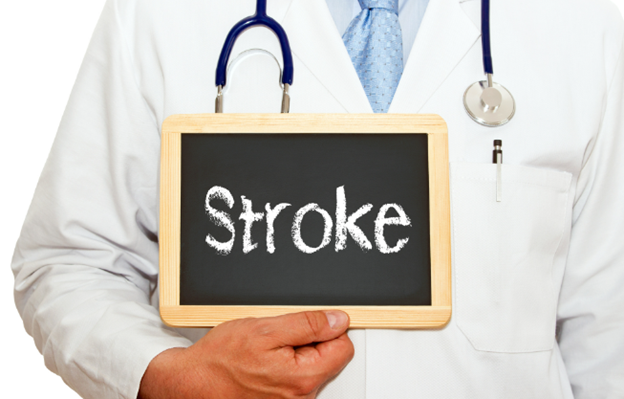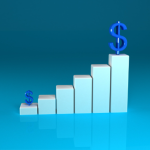Did you know that nearly 795,000 people in the United States have a stroke each year? That’s quite a number! Stroke recovery can be tough, but a healthy diet and lifestyle can help you bounce back.
In this article, we’ll show you how the right food and lifestyle adjustments can aid your stroke recovery and reduce the risk of another stroke.
So stay with us, and let’s explore the world of healing and recovery together.
The Importance of Stroke Recovery
Stroke recovery is crucial and demands our full attention. Our bodies need to heal, and we must give them the right nutrients and support to get better.
A healthy diet and lifestyle can not only help the recovery process but also lower the chances of another stroke.
Eating After a Stroke: The Right Nutrients for Recovery
When recovering from a stroke, our bodies need specific nutrients to heal. Let’s look at some key parts of a healthy diet for stroke recovery:
Protein: Repairing and Rebuilding
Protein is vital for fixing tissues and rebuilding muscles. Make sure to include it in your diet. Choose lean sources like chicken, fish, beans, and low-fat dairy products. By having enough protein, your body can heal more effectively.
Healthy Fats: Brain Health and Hormone Production
Fats are crucial for our brains and hormone production. Pick heart-friendly options like olive oil, avocado, and nuts. These fats not only support brain function but also contribute to overall well-being.
Fiber: Blood Sugar and Digestion
Fiber helps keep blood sugar levels stable and supports healthy digestion. Add whole grains, fruits, and vegetables to your meals. These fiber-rich foods can also help you feel full and satisfied.
Vitamins and Minerals: Essential for Overall Health
Vitamins and minerals play a key role in overall health. You can find them in various fresh fruits, vegetables, and lean proteins. By consuming a wide range of these foods, you’ll ensure your body gets the nutrients it needs to heal.
Lifestyle Adjustments: Key Changes for a Healthier You
Besides a balanced diet, making certain lifestyle adjustments can also support your stroke recovery journey. Let’s take a look at some tips to consider:
Regular Exercise: Strength, Balance, and Coordination
Physical activity is essential for improving strength, balance, and coordination. Talk to your healthcare professional to create an exercise plan tailored to your needs. By staying active, you’ll aid your body’s healing process and reduce the risk of another stroke.
Stress Management: Keeping Stress Levels in Check
Chronic stress can increase stroke risk. To manage stress, practice relaxation techniques like deep breathing, meditation, or yoga. These activities can help you feel calmer and more in control of your emotions.
Quit Smoking: A Major Stroke Risk Factor
Smoking is a significant risk factor for stroke. If you smoke, think about quitting or ask a healthcare professional for help. By quitting smoking, you’ll greatly reduce your chances of another stroke.
Limit Alcohol Intake: Avoiding Excessive Consumption
Too much alcohol can contribute to stroke risk. Limit your intake and stay away from binge drinking. By consuming alcohol in moderation, you’ll protect your health and reduce the risk of stroke.
Blood Clot Prevention and Medication Management
Medications play a crucial role in stroke recovery and blood clot prevention. It’s important to take your prescribed medications as directed by your healthcare provider.
Some people may need anticoagulant medications, such as Xarelto, to prevent blood clots. Find out here where to get Xarelto discounts.
Monitoring and Managing Blood Pressure
High blood pressure is a significant risk factor for stroke. It’s essential to monitor and manage your blood pressure regularly. By keeping your blood pressure in check, you can lower the risk of another stroke.
Here are some tips to help you manage your blood pressure:
Maintain a Healthy Weight
Being overweight can contribute to high blood pressure. Aim to maintain a healthy weight by following a balanced diet and engaging in regular physical activity. Your healthcare provider can help you determine your ideal weight and develop a plan to reach it.
Limit Sodium Intake
Excessive sodium intake can raise blood pressure levels. Try to limit your sodium consumption by avoiding processed and high-sodium foods. Instead, choose fresh, whole foods and use herbs and spices to flavor your meals.
Stay Hydrated
Drinking enough water is essential for overall health, including blood pressure management. Aim for at least eight glasses of water a day, but consult your healthcare provider for personalized recommendations based on your specific needs.
The Role of Social Support in Stroke Recovery
Recovering from a stroke can be an isolating experience. Having a strong social support network is essential for emotional well-being and stroke recovery. Here are some ways to build and maintain a support system during your recovery journey:
Connect with Family and Friends
Your loved ones can provide valuable emotional support during your recovery. Share your experiences and feelings with them, and don’t be afraid to ask for help when needed. By staying connected with family and friends, you’ll feel more understood and less alone.
Join a Support Group
Support groups can be an invaluable resource for individuals recovering from a stroke. These groups offer a safe space to share experiences, learn from others, and gain practical advice. Many support groups are available both in-person and online, making it easy to find one that fits your needs and preferences.
Seek Professional Help
If you’re struggling with your emotions or finding it difficult to cope with the challenges of stroke recovery, consider seeking professional help. Therapists, counselors, and other mental health professionals can provide guidance and support to help you navigate the recovery process.
Embracing a Healthy Diet and Lifestyle for Stroke Recovery
Stroke recovery can be a challenging journey, but with the right approach, you can make significant progress. By embracing a healthy diet, making lifestyle adjustments, and managing your blood pressure, you’ll support your body’s healing process and reduce the risk of another stroke.
Remember to stay connected with your support network and seek professional help when needed. By following these strategies, you’ll be well on your way to a successful stroke recovery.
Did you find this article helpful and informative? Check out more like it on our blog!



